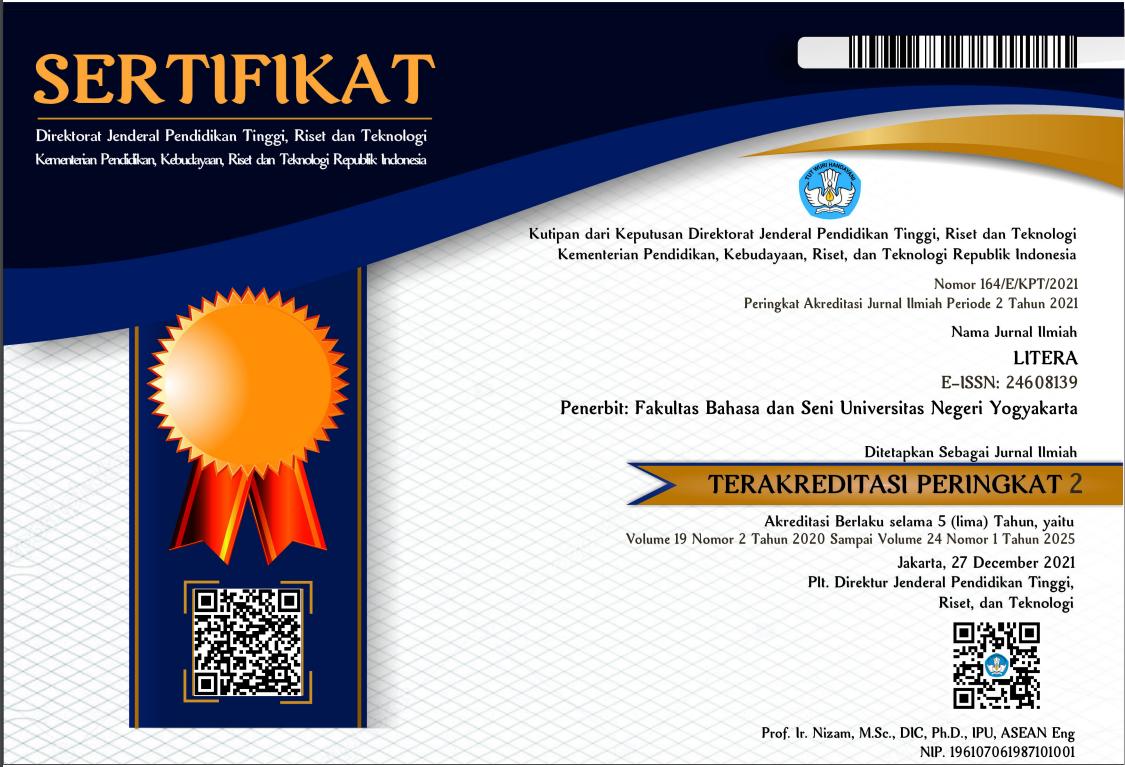KONSTRUKSI IDEOLOGI BAHASA GURU DALAM PEMBELAJARAN DI KELAS
Abstract
students as the teacher’s subordinates, (b) the teacher as controller of students, (c) silence as the best way in learning, (d) students’ mistakes as taboos, (e) obedience as a success determinant, (f) differences in learning capabilities between males and females, (g) students possessing no autonomy and responsibility, (h) students’ obligation to serve the teacher,
(i) students that need to be scared in order to learn, and (j) students’ basic tendency to lie. Second, such ideologies are expressed through the use of prohibition, command, words ideologically contested, lexicalization, irony, metaphor, eponym, and labeling.
Full Text:
PDFDOI: https://doi.org/10.21831/ltr.v13i1.1903
Refbacks
- There are currently no refbacks.
______________________
__________________________________________________________________________________________________
Litera Journal is published by the Faculty of Languages, Arts, and Culture Universitas Negeri Yogyakarta in collaboration with Himpunan Sarjana Kesusasteraan Indonesia (HISKI)
The International Journal of Linguistic, Literature, and Its Teaching at http://http://journal.uny.ac.id/index.php/litera/ is licensed under a Creative Commons Attribution-ShareAlike 4.0 International License
__________________________________________________________________________________________________















